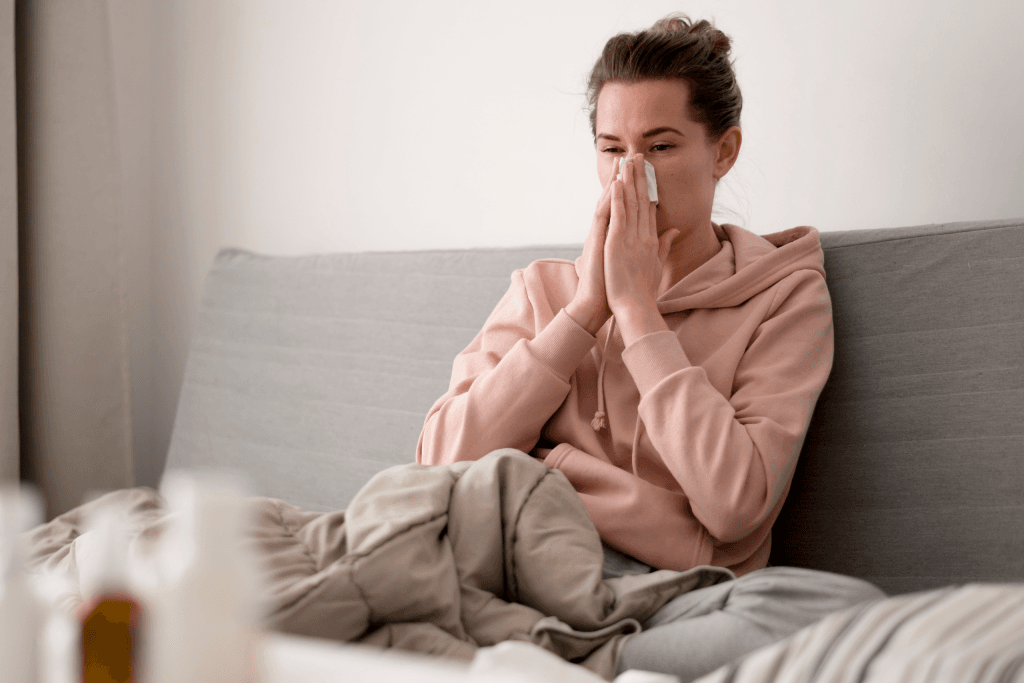
Home – Tests – Allergies and intolerances – Dust mite allergy test
West Midlands
Dust Mite Allergy Testing
Dust mite allergy is a common condition caused by an allergic reaction to tiny, microscopic creatures known as dust mites. These mites thrive in warm, humid environments and feed on dead skin cells from humans and pets. Dust mites are a common trigger for allergy symptoms, especially in indoor environments like homes, offices, and schools.
Cost
- Insect bite allergy blood test £220
- Focused GP appointment (15min) £75
- Standard GP appointment (30min) £120
Common symptoms of dust mite allergy
Dust mite allergy can cause many symptoms that may become more noticeable in dust-heavy environments. Sneezing is one of the most common reactions, often accompanied by a runny or stuffy nose due to nasal inflammation. Many people also experience itching, redness, or watering of the eyes, a condition known as allergic conjunctivitis.
Coughing can be persistent, especially at night, while some individuals may have wheezing and difficulty breathing, particularly if they have asthma. In more severe cases, dust mite allergy can lead to skin reactions such as eczema or hives, causing itching and discomfort.
How we diagnose dust mite allergy
At OneMedicine, we use several methods to accurately diagnose dust mite allergies. One common approach is the skin prick test, where a small amount of dust mite allergen is pricked into the skin, typically on the forearm or back, to observe if a reaction occurs. This quick test can help determine sensitivity to dust mites.
We may also perform a blood test to measure the levels of specific antibodies your body produces in response to allergens. This test provides useful insights into your immune system’s response to dust mites and helps confirm the diagnosis.
For individuals who may experience skin issues, a patch test could be recommended. This test involves applying small amounts of allergens to the skin under a patch, which is worn for a period to observe any delayed reactions.
Managing dust mite allergy
Managing dust mite allergies involves reducing exposure and treating symptoms. While dust mites can’t be completely eliminated, practical steps can help, such as using allergen-proof bedding, washing linens in hot water (above 60°C), and keeping humidity below 50%. Regular vacuuming and wiping surfaces with a damp cloth also minimise allergens.
For symptom relief, antihistamines can ease sneezing, itching, and a runny nose, while nasal corticosteroids help reduce inflammation. Decongestants may provide short-term relief, and leukotriene modifiers are useful for asthma or severe allergic rhinitis.
For long-term treatment, immunotherapy (allergy shots or sublingual tablets) can help desensitise your immune system to dust mites. Skin reactions, like eczema, can be managed with moisturisers, corticosteroid creams, and antihistamines to reduce irritation.
Do you have other questions?
If you’re experiencing persistent allergy symptoms or suspect dust mites are affecting your health, we encourage you to schedule a consultation with us. We’re here to guide you through the testing process and create a personalised plan that works for you.













